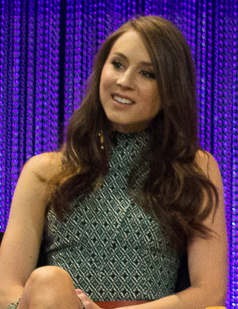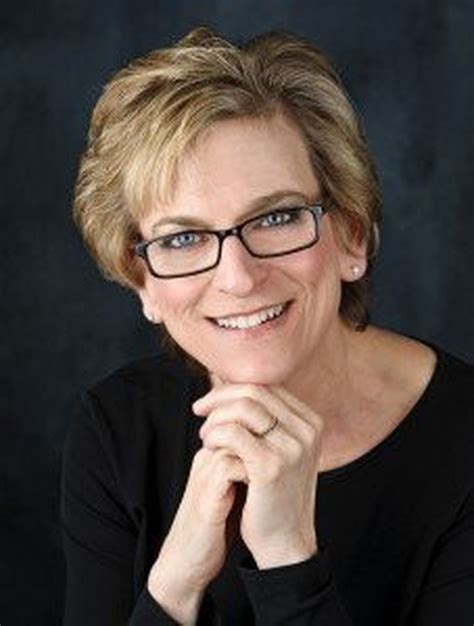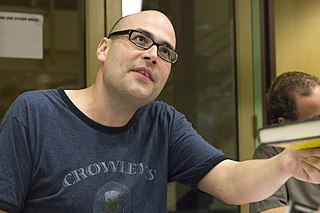A Quote by Clarissa Pinkola Estes
In this tradition a story is 'holy,' and it is used as medicine," she told Radiance magazine. "The story is not told to lift you up, to make you feel better, or to entertain you, although all those things can be true. The story is meant to take the spirit into a descent to find something that is lost or missing and to bring it back to consciousness again.
Related Quotes
It's only a story, you say. So it is, and the rest of life with it - creation story, love story, horror, crime, the strange story of you and I. The alphabet of my DNA shapes certain words, but the story is not told. I have to tell it myself. What is it that I have to tell myself again and again? That there is always a new beginning, a different end. I can change the story. I am the story. Begin.
My parents telling me that if there is a story you feel compelled to share, then you are responsible for doing that. You can't ask someone else to take on that story - or you can, but you have to deal with whatever the fallout is. If the story doesn't end up being told the way you originally heard it or that you feel it needs to be expressed, that's on you.
Too many writers think that all you need to do is write well-but that's only part of what a good book is. Above all, a good book tells a good story. Focus on the story first. Ask yourself, 'Will other people find this story so interesting that they will tell others about it?' Remember: A bestselling book usually follows a simple rule, 'It's a wonderful story, wonderfully told'; not, 'It's a wonderfully told story.'
The story he [Todd Willingham] told me was this: He woke up to a fire. He ran out of the house and couldn't run back in to save his children, and that was enough to get me interested. ... There's a writer in me that's like, ... this is a great story. ... I have a good friend, who was my neighbor at the time, and I told her about it. ... She had been a reporter, and she was like, "Let's go investigate it."
He thought about the story his daughter was living and the role she was playing inside that story. He realized he hadn't provided a better role for his daughter. He hadn't mapped out a story for his family. And so his daughter had chosen another story, a story in which she was wanted, even if she was only being used. In the absence of a family story, she'd chosen a story in which there was risk and adventure, rebellion and independence.
Phunny Business is a breezy, vivid, funny, star-studded and delightful valentine to comedy, entrepreneurship and the All-American impulse to make something out of nothing. The story of comedy club owner/inveterate dreamer Raymond Lambert and his heroic quest to create a safe, productive place for black stand-up comedians to hone their craft and find their voices isn't just a great Chicago story and a great comedy story: it's a flat-out great story, lovingly and engagingly told.
Vera said: 'Why do you feel you have to turn everything into a story?' So I told her why: Because if I tell the story, I control the version. Because if I tell the story, I can make you laugh, and I would rather have you laugh at me than feel sorry for me. Because if I tell the story, it doesn't hurt as much. Because if I tell the story, I can get on with it.
He held my hand and told me a story about when he was six and threw a rock at a kid's head who was bullying his brother, and how after that no one had bothered either of them again. 'You have to stick up for yourself,' he told me. 'But it's bad to throw rocks,' I said. 'I know. You're smarter than me. You'll find something better than rocks.
A woman recently told me a story about her descent into chronic fatigue. She was sleeping sixteen, eighteen hours a day, and feeling more tired when she woke up than when she went to bed. She really wanted to go to a workshop and she went anyway. And when she was there, she felt much less tired. So she decided, "Maybe if I continue to follow what I really want to do at all times, I will feel less tired." This was her spiritual practice - - to only do the things that she wanted to, and to not make choices based on anything else. That is an embracing of pleasure, of joy, of good feelings.







































